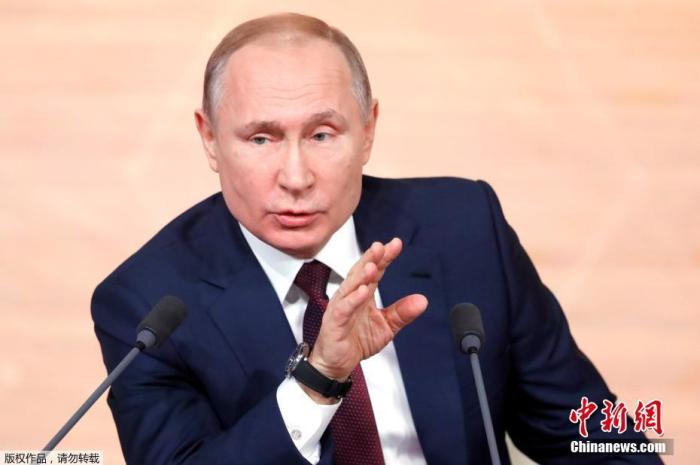China News Service, April 1st. According to a comprehensive report, Russian President Vladimir Putin signed a presidential decree on March 31, and the new rules for paying Russian natural gas in rubles to Russia's "non-friendly countries and regions" came into effect on April 1.
Reuters said it was Putin's strongest economic response to Western sanctions to date.
Regarding Russia's latest decision, European governments rejected Putin's "ultimatum", and it was revealed that they were courting Qatar, hoping to find a new source of natural gas.
At the same time, the United States announced that it will release 1 million barrels per day of strategic oil reserves for the next six months in response to the soaring energy prices caused by the situation in Ukraine.
FILE PHOTO: Russian President Vladimir Putin.
Russia: "Give your breath without paying rubles"
Russian President Vladimir Putin signed a presidential decree on the 31st, and the new rules for paying Russian gas in rubles to Russia's "non-friendly countries and regions" came into effect on April 1st.
Putin said on the same day that the various risks arising from the use of US dollars and euros for natural gas transactions are unacceptable to Russia.
"We will not provide any product to anyone for free, and we do not do charity." He emphasized that gas transactions are paid in rubles, which is an important step in stabilizing Russia's fiscal and economic sovereignty.
France and Germany: Prepare for the possibility of "breathing"
At present, except for a few countries such as Bulgaria and Moldova, which agree to pay in rubles, most European countries are opposed to this.
The G7 had previously made it clear that it rejected the Russian proposal.
In the face of Russia's "Ruble settlement order" for natural gas, Germany and France clearly expressed their opposition, calling it an unacceptable breach of contract and equivalent to "extortion".
German Economy Minister Habeck said Germany was prepared for all possible scenarios, including Russia halting gas deliveries to Europe.
French Minister of Economy and Finance Le Maire also said that France and Germany have rejected Russia's request and are preparing for the possibility that "Russia will no longer provide natural gas".
Data map: "Beixi-2" natural gas pipeline project landing facility pipeline.
The United States: It is difficult to judge the impact of the release of the strategic oil reserve
On the same day that Putin signed the "Ruble Settlement Order" for natural gas, US President Biden announced at the White House on March 31 that 1 million barrels of strategic oil reserves will be released per day for the next six months.
Under the dual pressure of domestic inflation in the United States and the situation in Ukraine, domestic energy prices in the United States have continued to rise in the past three months.
However, the long-term impact of the large-scale oil release by the US government on oil prices is difficult to judge at this stage.
In addition, after the outbreak of the Russian-Ukrainian crisis, the United States and its allies have tried to use strategic oil reserves to lower oil prices, but the effect is limited.
The Organization of the Petroleum Exporting Countries (OPEC) ignored calls from Western countries such as Biden and decided this week to maintain an oil production plan agreed with Moscow, with members adding only 432,000 barrels of oil per day.
Data map: On March 6, local time, a car owner refueled his vehicle in San Mateo County, California, United States.
Photo by China News Agency reporter Liu Guanguan
Europe is showing goodwill to Qatar to get rid of its dependence on Russia?
Meanwhile, The Wall Street Journal reported that Europe is courting Qatar, hoping the country will wean itself off its reliance on Russian gas.
Qatar and European officials said Germany, France, Belgium and Italy were in talks with Qatar over a long-term purchase of LNG.
German Economy Minister Habeck also previously flew to Qatar, announcing an energy partnership with Qatar and committing to build the country's first LNG terminal to receive LNG from Qatar and other gas-producing countries.
However, some analysts said that Qatar is cautious in reaching deals with Europe.
Such agreements sometimes take months to reach, and Qatar has yet to reach a final agreement with any European country.

